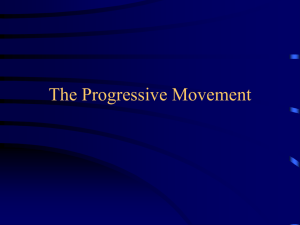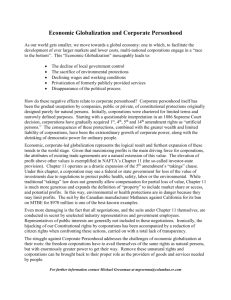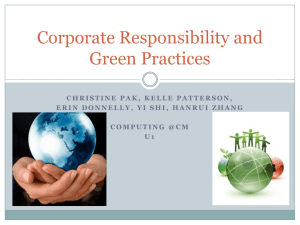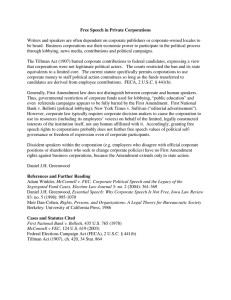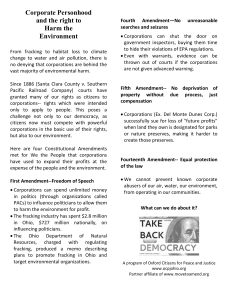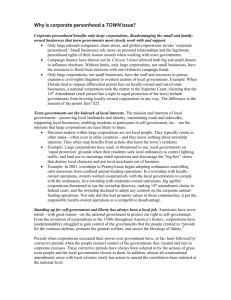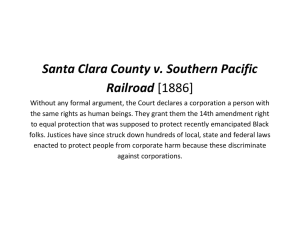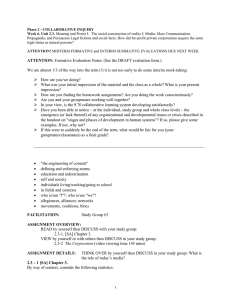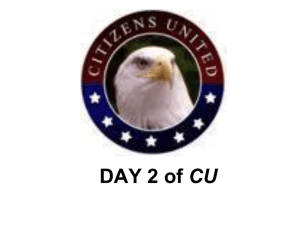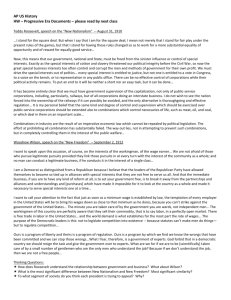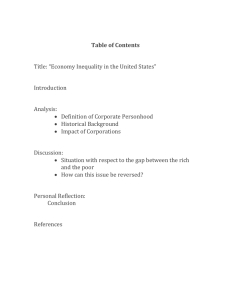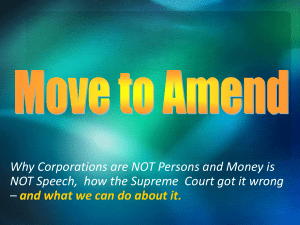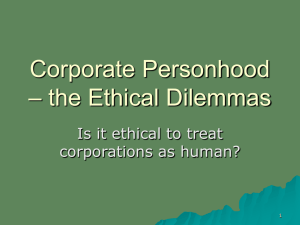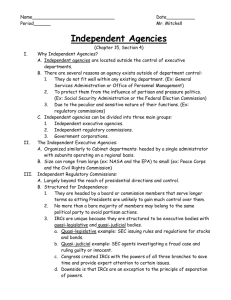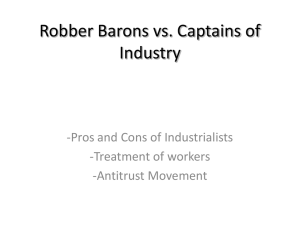Civil Rights and Corporate Personhood
advertisement
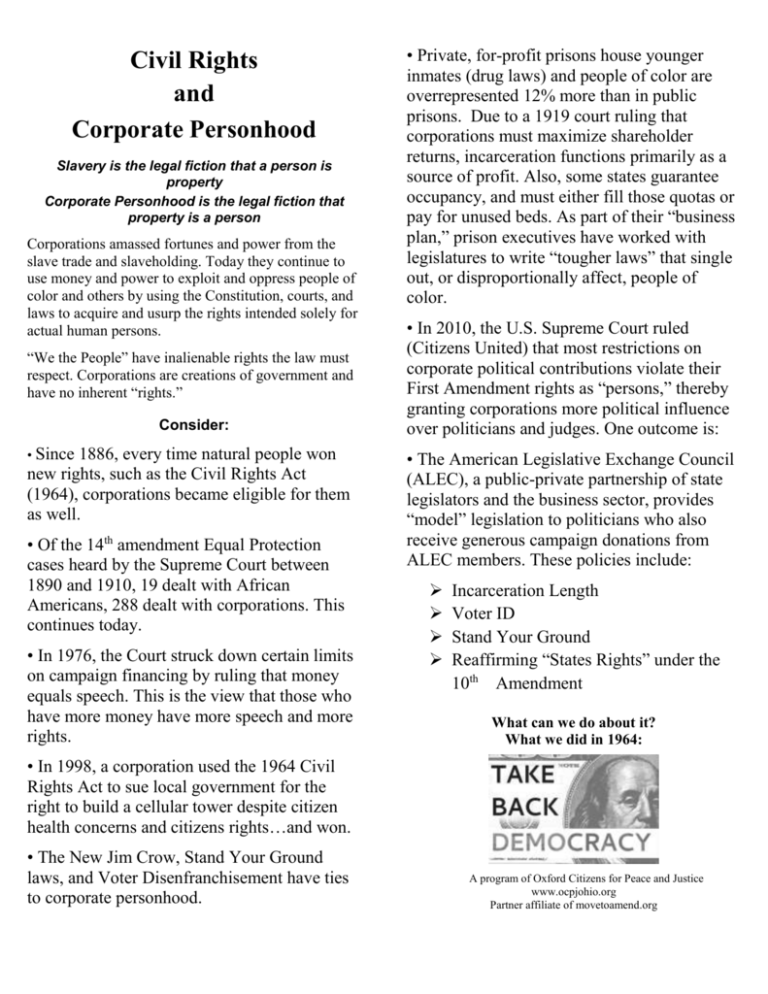
Civil Rights and Corporate Personhood Slavery is the legal fiction that a person is property Corporate Personhood is the legal fiction that property is a person Corporations amassed fortunes and power from the slave trade and slaveholding. Today they continue to use money and power to exploit and oppress people of color and others by using the Constitution, courts, and laws to acquire and usurp the rights intended solely for actual human persons. “We the People” have inalienable rights the law must respect. Corporations are creations of government and have no inherent “rights.” Consider: • Since 1886, every time natural people won new rights, such as the Civil Rights Act (1964), corporations became eligible for them as well. • Of the 14th amendment Equal Protection cases heard by the Supreme Court between 1890 and 1910, 19 dealt with African Americans, 288 dealt with corporations. This continues today. • In 1976, the Court struck down certain limits on campaign financing by ruling that money equals speech. This is the view that those who have more money have more speech and more rights. • Private, for-profit prisons house younger inmates (drug laws) and people of color are overrepresented 12% more than in public prisons. Due to a 1919 court ruling that corporations must maximize shareholder returns, incarceration functions primarily as a source of profit. Also, some states guarantee occupancy, and must either fill those quotas or pay for unused beds. As part of their “business plan,” prison executives have worked with legislatures to write “tougher laws” that single out, or disproportionally affect, people of color. • In 2010, the U.S. Supreme Court ruled (Citizens United) that most restrictions on corporate political contributions violate their First Amendment rights as “persons,” thereby granting corporations more political influence over politicians and judges. One outcome is: • The American Legislative Exchange Council (ALEC), a public-private partnership of state legislators and the business sector, provides “model” legislation to politicians who also receive generous campaign donations from ALEC members. These policies include: Incarceration Length Voter ID Stand Your Ground Reaffirming “States Rights” under the 10th Amendment What can we do about it? What we did in 1964: • In 1998, a corporation used the 1964 Civil Rights Act to sue local government for the right to build a cellular tower despite citizen health concerns and citizens rights…and won. • The New Jim Crow, Stand Your Ground laws, and Voter Disenfranchisement have ties to corporate personhood. A program of Oxford Citizens for Peace and Justice www.ocpjohio.org Partner affiliate of movetoamend.org
